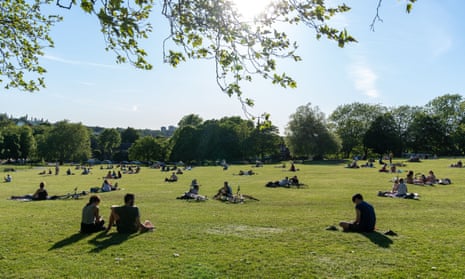More than half of young adults are no longer sticking strictly to UK lockdown rules, according to a survey.
Researchers who questioned more than 90,000 adults found “complete” compliance with government safety measures, such as physical distancing and staying at home, had dropped in the past two weeks from an average of 70% of people to less than 60%.
Less than 50% of people under 30 were “completely” complying with lockdown rules, according to the University College London (UCL) study, which looked at how adults were feeling about a range of issues during the pandemic. These included the lockdown, government advice, their overall wellbeing and mental health.
The lead author of the study, Dr Daisy Fancourt at the UCL’s epidemiology and healthcare unit, noted there had been “generally a very high” level of compliance.
The ongoing study, which was launched in the week before the lockdown, also found 95% of all adults and 92% of young people felt they were either “reasonable” or “good” at sticking to the measures.
The findings come alongside a decrease in confidence in the government in England since the easing of lockdown was announced on 10 May.
Fancourt said: “Confidence in government … is lowest in those under the age of 30.”
Those questioned were asked to grade the government’s handling of the pandemic from one to a top mark of seven. Their rating had dropped from five at the beginning of lockdown to about four, according to those who were questioned between 11 and 17 May.
Levels of anxiety and depression had not improved since the easing of lockdown, while worries about getting ill from Covid-19 had fallen slightly.
Fears about food, finance and unemployment were a cause of stress for some people. The researchers found that about one in 12 were worried about unemployment, while about one in eight were anxious about their finances.
Stress about being able to get enough food had stabilised in the past week, with fewer than one in 20 people saying they were worried about this.
The Nuffield Foundation is funding the study, which is backed by Wellcome and UK Research and Innovation.
Cheryl Lloyd, the head of the education programme at the foundation, said: “Interestingly, while life satisfaction levels have remained stable, full compliance with lockdown restrictions has fallen over the past week, especially among those under 30.”
